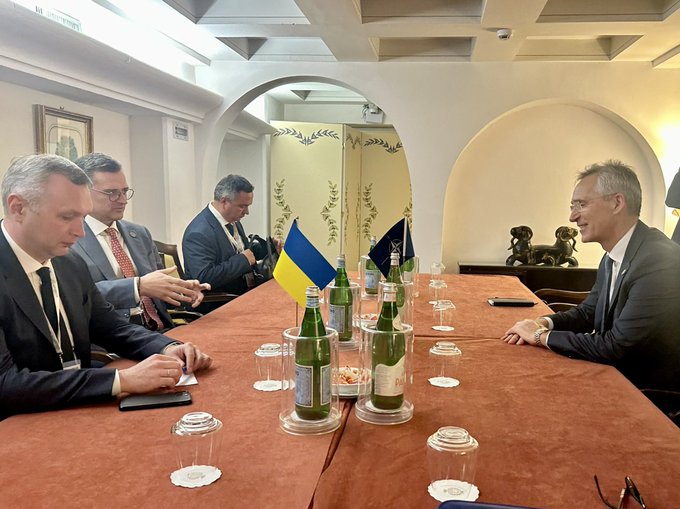NATO and the European Union agreed for the urgent need of air defence systems and artillery to Ukraine in order to help its war with Russia and told foreign ministers of the G7 to work on delivery.
Top officials and foreign ministers met in Capri, Italy to discuss on several matters, including a sanction response to Iran after its drone attack on Israel. At the meeting, there were ministers from the United Kingdom, Canada, France, Germany, Italy, Japan and the United States, plus Ukraine’s Foreign Minister Dmytro Kuleba as a guest.
NATO Secretary General Jens Stoltenberg said that “we cannot continue to be in a situation where Russia is outgunning Ukraine, in the way they do now. The Russians are shooting and shooting, and the Ukrainians have limited resources to shoot back. So the Ukrainians need more, and that’s the urgent and important message from me to all allies.”
Despite this alarm, he welcomed positive signals from the United States, where Congress may soon vote on $61 billion in aid after months of stalling, and recent financial pledges from the Netherlands, Denmark and Germany.
Kuleba in his speech also thanked Germany for its recent decision to send a new Patriot missile battery, but urged US Congress to swiftly pass the aid package. Under the deal, the majority of the $61 billion will go to US defence manufacturers to purchase weapons and ammunitions for Ukraine. As recently as last Wednesday, President Joe Biden showed support for the proposal brought forward by House Speaker Mike Johnson.
Despite the recent steps by the US, EU foreign policy chief Josep Borrell underlined that Europe can’t rely only on the US to help Ukraine and ask European countries to do more: “We do have Patriots, we have anti-missile systems. We have to take them from the our barracks where they are just in case, and to send to Ukraine where the war is raging. And I’m sure we will be doing that, but it has to be done quickly.”
On Iran, the ministers agreed on the need to send a message to Teheran, with the overall target of de-escalating conflict in the area. Borrell called on Israel to stop the escalation, while German Foreign Minister Annalena Baerbock said that Iran should be isolated for the attack because “there must be a reaction to this unprecedented incident, but there must be no further escalation in the region.”

